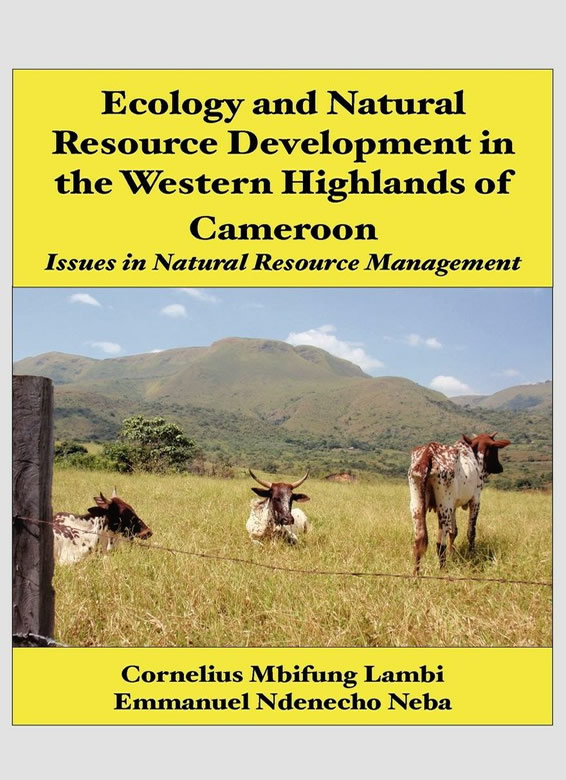written by Cornelius Mbifung Lambi and Emmanuel Ndenecho Neba
Issues in Natural Resource Management
The densely populated Bamenda Highlands of Cameroon remains one of the regions with the greatest land degradation problems in the country. Factors responsible for this include climate change, the hilly nature or topographic layout of the land, and human interference through overgrazing, destructive agricultural practices and the impact of deforestation. This detailed study of resource management and its ecological challenges in the Bamenda Highlands, stresses an important link between falling food output and soil deterioration.
While most areas in this predominantly agricultural region enjoy food abundance, the inhabitants of high-density infertile, rugged mountainous areas are forced to resort to double cropping and intensified land exploitation that leave little room for soil regeneration. The population problem in relation to land degradation is infinitely more complicated than the region’s sheer ability to produce enough food supply. The authors make a strong case for a delicate balance between human agency and environmental protection in this highly populated and physically challenging region where land is a precious resource and land conflicts are common.
| ISBN | 9789956615483 |
| Pages | 220 |
| Dimensions | 216 x 140 mm |
| Illustrations | B/W Illustrations and Maps |
| Published | 2009 |
| Publisher | Langaa RPCIG, Cameroon |
| Format | Paperback |





1 comment
““The Western highlands of Cameroon have long fascinated students of history, anthropology and politics because of their rich and complex cultural life. Yet the rocks, soils, slopes, rivers, vegetation and climate that are so closely related to that history have been relatively neglected. Now, Cornelius Lambi and Emmanuel Neba, two of Cameroon’s most well-established and authoritative geographers, have started to fill the gap. This collection of eleven very diverse essays shows their latest research and their deep understanding of the environment of the Western highlands. This lavishly illustrated volume is an important addition to a critical field, which will become a vital reference for anyone interested in understanding resource management in Cameroon.”
Dr Ben Page, Reader, Development Geography, University College London, UK